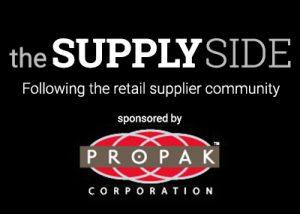The Supply Side: Wal-Mart suppliers could see new opportunities with Lidl
by May 1, 2017 5:30 pm 1,324 views

German grocery giant Lidl is a real threat for grocery chains across the U.S., but for suppliers to Wal-Mart Stores, Kroger and other conventional grocers it’s also a growth opportunity, according to Carol Spieckerman, CEO of Spieckerman Retail in Bentonville.
Lidl plans to open the first of its U.S. stores in May, and the retailer did its homework well ahead of time so that it can be successful in the U.S. Much of that success will depend on the products it sells to help drive customer loyalty.
“I’ve spoken with several recently that are working on propositions for Lidl. Retailers have reason for concern, not just because Lidl is going all-in (not just testing the market), but also because the combination of Aldi and Lidl is a small format, ‘one-two’ punch,” Spieckerman told Talk Business & Politics.
Clint Lazenby, founder of #OnShelf, said there are many similarities between Aldi and Lidl but comparing them and thinking a single strategy will work would be a mistake as there are some key differences that could benefit suppliers. He said Lidl will have a mix of branded and private label items, while Aldi is mostly private label. He said both chains focus on “relentless sourcing practices, have a best in class supply chain management and low store operational costs along with superior lean overhead carry.”
“This represents a lot of upside for companies who can offer the right value by changing their product sizing and cost structures to hit key price points. In many cases, these costs can be offset by the way these companies go to market which extends the low cost model to the manufacturer’s. I have no idea how this will play out, but it will be interesting how other retailers choose to partner with their manufactures or they decide to take a more adversarial position with them,” Lazenby said.
Mike Paglia, director of retail insights for Kantar Retail, recently spoke about the Lidl threat in Bentonville. He said price wars with Lidl don’t work. He warned suppliers not to play the price discount game with its top tier brands. He said think about smaller packages or perhaps slightly altered formulas that could be sold into Lidl without disrupting the brand loyalty it might have built at Wal-Mart at a higher or value-by-quantity pricing strategy.
 Paglia said Lidl’s strategy is having the right products, promoting them at the right price and place. Given the stores in the U.S. are considerably larger than in Europe, Lidl will be carrying more items and that means opportunities for suppliers selling everything from dish soap to workout apparel. Paglia said the supplier relationship with Lidl is quite different as this retailer is known to rotate the stock it carries over time so there will likely be some seasonal selling opportunities from general merchandise suppliers.
Paglia said Lidl’s strategy is having the right products, promoting them at the right price and place. Given the stores in the U.S. are considerably larger than in Europe, Lidl will be carrying more items and that means opportunities for suppliers selling everything from dish soap to workout apparel. Paglia said the supplier relationship with Lidl is quite different as this retailer is known to rotate the stock it carries over time so there will likely be some seasonal selling opportunities from general merchandise suppliers.
Paglia said Lidl’s private brand strategy is also tiered into three price categories, budget, standard and premium. He said this will be a big part of the brand suppliers’ competition on the shelf. He said Lidl has nine categories where it plans to offer deeper assortments in wine, ethnic foods, produce, meat and fish, bakery, fresh and frozen as well as checkout-impulse items. Suppliers with products in these categories could see opportunities to sell items into the various tiers. He said early on Lidl plans to sell more name brands in hopes of driving some shopper loyalty, but he warned suppliers that very few brands can remain on the shelf year after year without some interruption given the rotating product strategy used by Lidl.
Spieckerman said the potential combined scale of Lidl and Aldi will put U.S. dollar, drug, grocery and discount retailers on notice. Lazenby agreed the threat is real for retailers because nobody has been able to really break their success model. He said Lidl and Aldi have a clear strategy on the shopper they serve and focus on the right assortment at the right price for essentially staple products in a given household with a few treasure hunt items along the way.
“The threat isn’t just price-based but also the powerful convenience proposition and potential loyalty factor. Aldi has built up quite a loyal following in the U.S. and that loyalty has translated to Aldi’s private brands (much as it has for Aldi’s Trader Joes concept). Lidl has the potential to achieve similar gains once awareness takes hold. Walmart’s best defense is to continue to roll out Neighborhood Market locations and ensure that its click and collect business is seamless and connected to all of its physical locations. Lidl is testing click and collect in Europe and will no doubt parlay any successes to its state-side stores. That is the potential game-changer,” Spieckerman said.
Lazenby said one strategy to compete might be leveraging a private brand assortment designed and priced to go head-to-head on the core business segments the consumer is judging for value, and then use the rest of the purchase to drive the overall basket economics they are looking for.
“It seems to me the value prop to the consumer is the key driver combined with the smaller box that keeps you on your shopping mission is what makes it a winner. This is powered from the same productivity loop we often hear Walmart discuss,” he added.
Paglia agreed that Lidl has been watched Aldi’s success in the U.S. and that’s how it’s determining where stores will be located. He said the new stores will be in the mid-Atlantic states as far north as New Jersey and as far south as Georgia, with Texas also in focus. Within the next year Paglia said Lidl will have 100 stores in the U.S. strategically located where Aldi is performing well. Paglia adds that Lidl’s track record for entering new markets is also pretty impressive at 28:1.
A few tips Paglia shared with suppliers about fending off the threat include:
• Suppliers will need to force Wal-Mart to think about price cuts strategically looking price elasticity overtime.
• Suppliers will need to use their own data to help Walmart discern where and how deep to rollback prices
• Suppliers will have to collaborate across their retail teams to ensure their top premium brand products are not sold too cheap at Lidl
• Suppliers need to help Wal-Mart build baskets looking for new and unique occasions to promote products.
